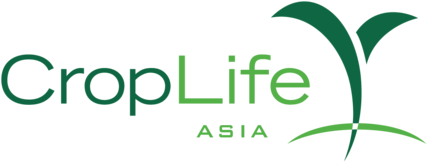CropLife Asia Affirms Need for Technology and Innovation for Healthier Food Environment in Asia-Pacific
CropLife Asia and its members are commemorating the day by raising the necessity of a biologically-diverse planet in ensuring our sustainable future and highlighting that plant science industry is increasingly ‘part of the solution’ in supporting biodiversity.
Singapore, 14 July 2023 – With the release of the United Nations (UN) 2023 State of Food Security and Nutrition in the World (SOFI) report, CropLife Asia and its member companies reaffirmed their commitment to advancing policies that can help unlock the potential of plant science and other agricultural innovations to drive greater food security and access to safe, nutritious food across the region.
As indicated in the 2023 SOFI report, it is estimated that between 691 and 783 million people in the world faced hunger and Asia continues to be home to more than half (55%) of that figure. Additionally, about 2.4 billion people or 29.6 percent of the global population were moderately or severely food insecure in 2022, with 1,144.9 million people in Asia being part that statistic1. With the exception of Europe and Northern America, there is higher food insecurity in rural areas than in urban areas. In Asia that figure is at 26.5 percent for rural areas compared to 21.8 percent in urban areas. Achieving the Sustainable Development Goal 2 target of Zero Hunger remains a huge challenge with projections that almost 600 million people will be chronically undernourished in 20302.
An affordable healthy diet was also out of reach for 3.1 billion people in the world, roughly 42 percent of the global population3. The report also shows that the number of undernourished people in Asia is the highest in the world at 401.6 million. The cost of a healthy diet rose globally by 4.3 percent in 2021 compared to 2020 and while the average cost of a healthy diet daily was 3.66 PPP (Purchasing Power Parities) dollars per person, Asia’s was higher at 3.90 PPP dollars per person4.
“Food insecurity is an issue that undoubtedly continues to plague many in this region and around the world,” said Dr. Siang Hee Tan, Executive Director of CropLife Asia. “Whilst there is no silver bullet to solving hunger, CropLife Asia and our members are committed to bringing technologies and innovations to the region that will enable farmers to grow more food with fewer resources and less impact to the world around us. Ensuring that everyone has access to an affordable and nutritious food supply is an ambitious goal that calls for impactful collaboration among food value chain stakeholders more than ever before.”
Plant science plays a key role in helping to support crop productivity especially with unpredictable weather patterns, managing and protecting natural resources, and driving national economies. Among the various innovations in place, biofortification of staple foods is an important innovation as it helps delivers micronutrients to the consumers of the food. With the increasing cost of food, many people may not have access or be able to afford more nutritious foods and biofortification will be able to raise the nutrients profile in staple food to meet the nutrition requirements.
Additionally, the responsible use of crop protection products (or pesticides) remains critical in supporting farm productivity by protecting crops from pests5, weeds and diseases. Without the use of pesticides, 70% of crop yields could have been lost to pests. Farmers are the foundation of our food systems and their access to tools like improved seeds, crop protection, and plant biotechnology can help ensure food security.
1 FAO, IFAD, UNICEF, WFP and WHO. 2022. In Brief to The State of Food Security and Nutrition in the World 2022. Urbanization, agrifood systems transformation and healthy diets across the rural-urban continuum. Rome, FAO. https://doi.org/10.4060/cc3017en
2 FAO, IFAD, UNICEF, WFP and WHO. 2022. In Brief to The State of Food Security and Nutrition in the World 2022. Urbanization, agrifood systems transformation and healthy diets across the rural-urban continuum. Rome, FAO. https://doi.org/10.4060/cc3017en
3 FAO, IFAD, UNICEF, WFP and WHO. 2022. In Brief to The State of Food Security and Nutrition in the World 2022. Urbanization, agrifood systems transformation and healthy diets across the rural-urban continuum. Rome, FAO. https://doi.org/10.4060/cc3017en
4 FAO, IFAD, UNICEF, WFP and WHO. 2022. In Brief to The State of Food Security and Nutrition in the World 2022. Urbanization, agrifood systems transformation and healthy diets across the rural-urban continuum. Rome, FAO. https://doi.org/10.4060/cc3017en
5 Oerke EC (2005) Crop losses to pests. J Agr Sci 144:31–43. doi:10.1017/S0021859605005708
About CropLife Asia
CropLife Asia is a non-profit society and the regional organization of CropLife International, the voice of the global plant science industry. We advocate a safe, secure food supply, and our vision is food security enabled by innovative agriculture. CropLife Asia supports the work of 15 member associations across the continent and is led by six member companies at the forefront of crop protection, seeds and/or biotechnology research and development. For more information, visit us at www.croplifeasia.org.
For more information please contact:
Duke Hipp
Director, Public Affairs
CropLife Asia
Tel: (65) 6221 1615
